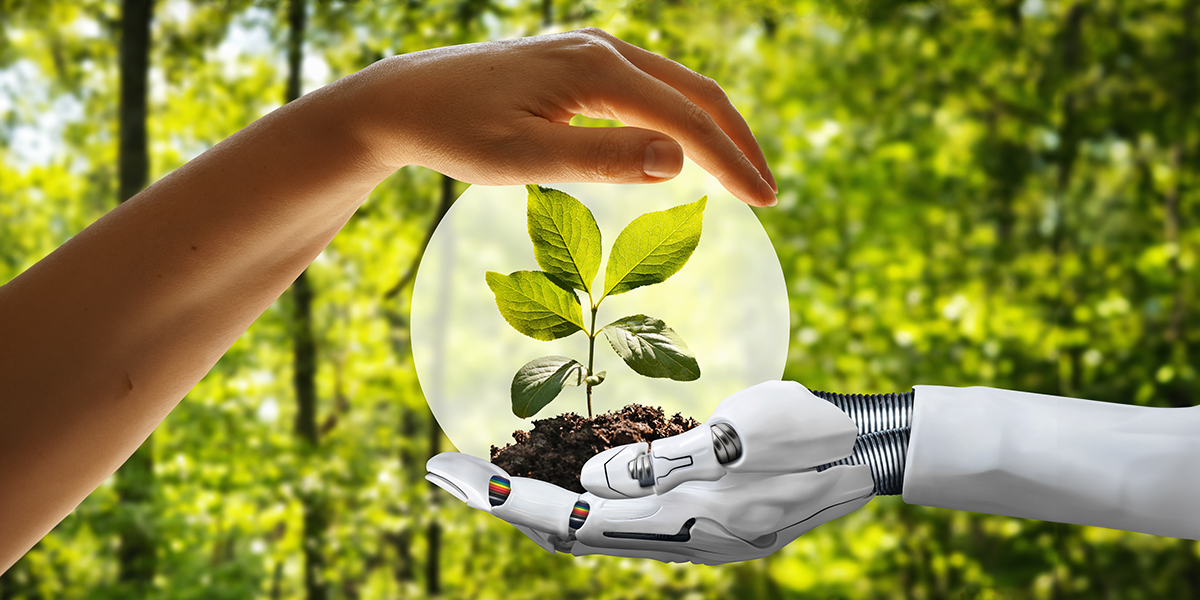Nowadays, artificial intelligence is not only a part of technological innovations but also makes a significant difference for the future by producing eco-friendly solutions. In this article, we explore how artificial intelligence contributes to sustainability goals across various sectors, from agriculture to mining, construction to machinery.
Artificial intelligence is creating a profound transformation in all areas of life, offering revolutionary solutions not only in daily life but also in numerous fields of work. Most of us are now familiar with AI-driven innovations such as smart home assistants, autonomous vehicles, and automation systems. However, artificial intelligence is not only important for today but also plays a critical role in building a sustainable future. So, how does this advanced technology make a difference in the field of sustainability?
How Does Artificial Intelligence Work?
Artificial intelligence offers a technology that can analyze large datasets and make decisions, just like humans. Through techniques such as machine learning, deep learning, and natural language processing, AI systems continuously learn, make predictions, and improve themselves. AI not only boosts efficiency but also provides solutions to complex problems such as environmental sustainability.
Sustainability Strategies with Artificial Intelligence
Artificial intelligence plays a significant role in sustainability strategies. It stands out as a key technology in achieving goals such as efficient resource usage, reducing energy consumption, and accelerating eco-friendly projects. Companies manage their environmental impact better, reduce waste, and optimize resource management thanks to AI. Moreover, AI enables the early detection of environmental risks, allowing for proactive solutions to be developed.
Artificial Intelligence and Environmental Sustainability
Artificial intelligence offers various solutions to ensure environmental sustainability. AI-powered sensors that monitor water and air quality instantly detect environmental changes, contributing to the creation of eco-friendly policies. Additionally, AI provides significant benefits in reducing carbon footprints and conserving natural resources.
In Which Fields Does AI Contribute to Sustainability Goals?
AI plays a critical role in sustainability practices across many sectors, including agriculture, energy, manufacturing, logistics, mining, construction, and machinery. AI-based systems improve consumption, recycling, maintenance, and operational processes in these sectors and automate procedures.
Environmental Management with Artificial Intelligence in Mining
The mining sector also benefits from AI-driven solutions to minimize its environmental impact. AI makes mining exploration and extraction processes more efficient. For example, AI-supported data analytics are used to detect mineral deposits, preventing unnecessary excavations and minimizing environmental damage.
AI optimizes the energy consumption of mining equipment, which is known for high energy use, reducing overall energy consumption. AI-powered systems identify optimal strategies in energy management, boosting energy efficiency. AI is also effective in waste management, optimizing recycling processes and identifying materials that can be recycled.
Sustainability in the Construction Sector with Artificial Intelligence
The construction sector is known for having significant environmental impacts due to material and energy consumption. AI-powered systems enable more efficient planning of construction projects, optimizing material usage, preventing waste, and reducing costs.
AI analyzes energy consumption and provides strategies to increase energy efficiency in construction projects. This is particularly advantageous for green building projects. AI optimizes the energy performance of buildings, reducing internal energy usage and accelerating eco-friendly certification processes like LEED.
Artificial Intelligence in Machinery and Equipment Management
The machinery sector is known for its high energy and fuel consumption. However, significant steps are being taken towards sustainability in this field, thanks to AI.
AI enhances the performance of machinery by monitoring real-time working conditions, increasing efficiency. AI-powered systems ensure machinery operates at optimal efficiency, minimizing fuel consumption and energy waste. The active operation parameters of machinery are constantly analyzed by AI, giving fleet managers the opportunity to take necessary actions regarding fuel consumption.
Autonomous machinery, equipped with AI and advanced sensor technologies, are efficient and eco-friendly vehicles that can operate without human intervention and are becoming increasingly widespread in industries like construction, mining, and logistics. These machines contribute to making operations more efficient, safer, and sustainable.
AI-powered systems can detect potential issues in machinery before they break down, reducing maintenance costs and preventing long downtime due to breakdowns.










Hello!
As writers for theBClog, we share with you articles that highlight current developments and inspiring ideas in various topics, from sustainability to technology, energy to climate, and innovation to human interest stories.
Enjoy!